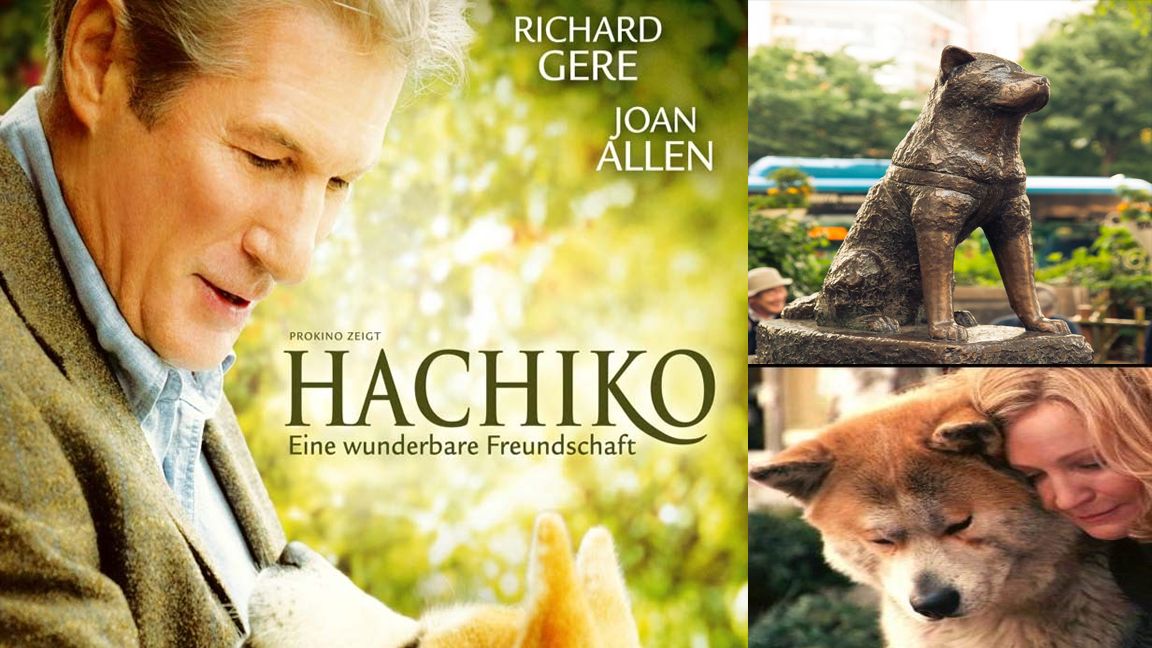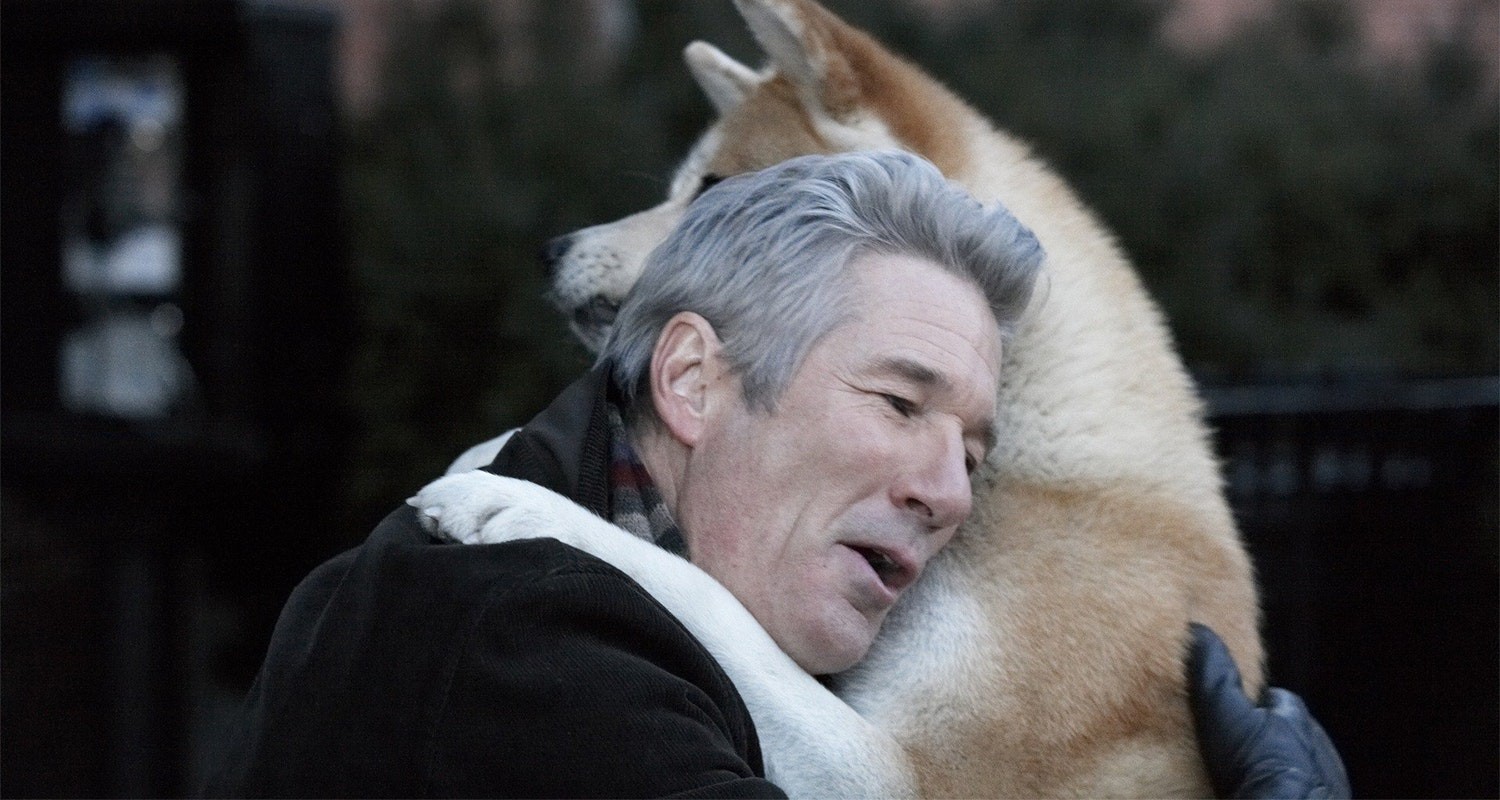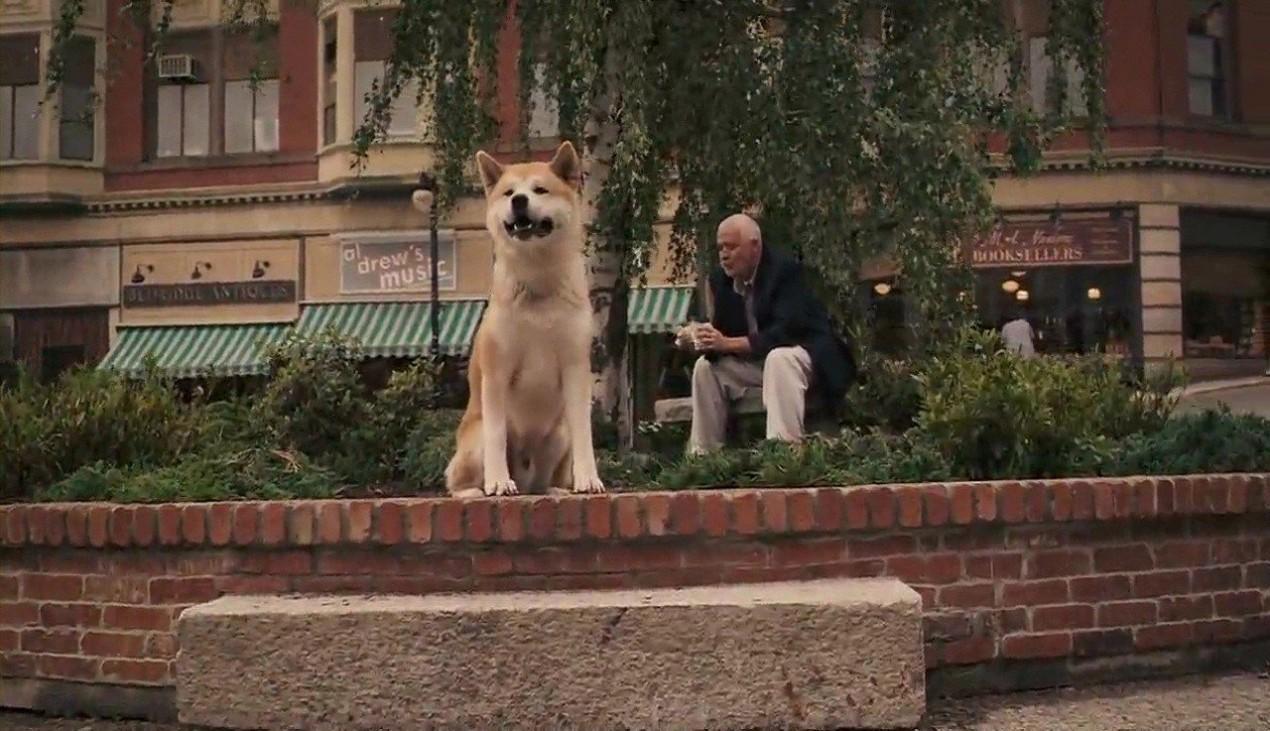“Hachi a dog’s tale 2009”

Overview: Hachi: A Dog’s Tale is a 2009 American drama film directed by Lasse Hallström and starring Richard Gere, Joan Allen, and Jason Alexander. It’s based on the true story of Hachiko, a loyal Akita dog in Japan, and is a remake of the 1987 Japanese film Hachiko Monogatari. The film explores themes of loyalty, love, and the profound bond between humans and animals, making it a heartwarming and tear-jerking experience. Set in a modern-day American context, the film touches hearts with its portrayal of unwavering devotion.
Plot Summary: The film begins with a flashback, where a young boy recounts the story of Hachi, a dog that changed the life of his grandfather, Parker Wilson (Richard Gere). Parker is a college professor who discovers an Akita puppy abandoned at a train station. Despite attempts to find the dog’s owner, Parker decides to take the puppy home and eventually forms a deep bond with him.
Hachi quickly becomes a cherished member of Parker’s family, though his behavior is a bit mysterious. Unlike other dogs, Hachi refuses to perform typical tricks or tasks but displays a deep loyalty toward Parker. Every day, Hachi walks with Parker to the train station as he leaves for work and waits there for his return in the evening.
One day, Parker tragically dies of a heart attack while at work, never returning to meet Hachi at the station. Despite this, Hachi continues to wait at the station every day at the same time for nearly ten years, showing unwavering loyalty and love for his deceased owner. The local townspeople, moved by Hachi’s dedication, begin to care for him, and his story becomes a symbol of love and loyalty that touches the hearts of many.![REVIEW] Hachi: A Dog's Tale - Khi yêu thương là không cần thốt thành lời](https://i.imgur.com/ANjCiUL.jpg)
Character Development: The central relationship between Parker and Hachi is the emotional core of the film. Richard Gere delivers a warm and understated performance as Parker, portraying a man who finds unexpected companionship and meaning through his bond with Hachi. His character is kind, compassionate, and deeply connected to his dog, reflecting the pure and selfless love that animals can offer to humans.
Hachi, played by multiple Akita dogs, is portrayed as a gentle, noble creature. The film focuses on his unwavering loyalty and attachment to Parker, but it also captures his quiet strength and independent spirit. Through Hachi’s actions, the film conveys the deep, wordless connection that can exist between humans and animals, reminding viewers of the emotional intelligence and loyalty of dogs.
Joan Allen, as Parker’s wife Cate, provides a subtle yet powerful performance, especially in the latter part of the film as she struggles with grief and Hachi’s continuing loyalty to Parker. While she initially opposes keeping Hachi, she comes to understand the profound bond between her husband and the dog.
The supporting characters, including the townspeople and Parker’s colleagues, serve to highlight the impact Hachi’s story has on the community. Jason Alexander, who plays Carl, the stationmaster, adds a touch of humor and warmth to the story, helping to ground the emotional weight of the narrative in the everyday lives of the people around the train station.
Cinematography and Atmosphere: The cinematography by Ron Fortunato beautifully captures the simplicity and emotional depth of the story. The film makes excellent use of natural light and soft, warm colors, creating an intimate and comforting visual atmosphere. The train station, where much of the story unfolds, becomes a central and symbolic location, evoking feelings of both routine and loss as the seasons change but Hachi remains steadfast in his devotion.
The peaceful suburban setting contrasts with the emotional intensity of the story, highlighting the quiet yet powerful nature of Hachi’s loyalty. The changing seasons—shown through snowy winters, rainy autumns, and sunny springs—serve as a poignant backdrop to Hachi’s years of waiting, reflecting the passage of time and the dog’s unwavering vigil.
Direction and Pacing: Lasse Hallström’s direction is gentle and measured, allowing the emotional story to unfold at its own pace without feeling rushed or overly dramatic. The film relies heavily on subtle gestures and quiet moments, reflecting the simple yet profound relationship between Parker and Hachi. Hallström doesn’t rely on excessive dialogue to convey emotion; instead, he lets the actions of the characters, especially Hachi, speak volumes.
The pacing is slow and deliberate, which suits the reflective tone of the film. While some may find the pacing too slow, especially in the middle sections, it allows the audience to fully immerse themselves in the emotional journey and bond between the characters.
Themes: The film’s central theme is loyalty, particularly the unconditional love and devotion that animals, especially dogs, can offer. Hachi’s story exemplifies the idea that love transcends even death, and that true loyalty endures despite time and loss. The film explores how Hachi’s devotion to Parker, even after his passing, affects not just their family but the entire community, reminding viewers of the deep emotional bonds that can exist between humans and animals.
Grief is another key theme, as the film depicts the various ways people cope with loss. While Parker’s family and friends move on, Hachi’s refusal to let go of his routine demonstrates the pure, unchanging nature of his love. The film also subtly touches on the idea of acceptance, as those around Hachi, including Cate, come to respect and even admire his loyalty despite their initial frustration.
Emotional Impact: Hachi: A Dog’s Tale is deeply moving, with moments that will undoubtedly bring tears to the eyes of even the most stoic viewers. The film’s quiet, understated portrayal of Hachi’s loyalty and devotion hits hard, especially as the audience watches him wait year after year for Parker to return. The emotional impact comes not from melodrama but from the simple and profound love between a dog and his owner, which is presented with sincerity and tenderness.
The final scenes, in particular, are heart-wrenching, as the culmination of Hachi’s years of waiting comes full circle, leaving a lasting emotional impact on the audience.
Conclusion: Hachi: A Dog’s Tale is a heartfelt and poignant film that celebrates the bond between humans and animals. With its touching portrayal of loyalty, love, and loss, the film transcends the typical “dog movie” and offers a powerful, emotionally resonant story. Richard Gere’s compassionate performance, combined with the beautiful direction by Lasse Hallström, makes this film a must-watch for animal lovers and anyone who appreciates stories of enduring devotion.
Though the pacing may feel slow to some, the film’s emotional depth and quiet strength make it a powerful meditation on the simple yet profound connections that shape our lives. Hachi: A Dog’s Tale serves as a reminder of the loyalty that animals can offer and the lasting impact they can have on our hearts.











